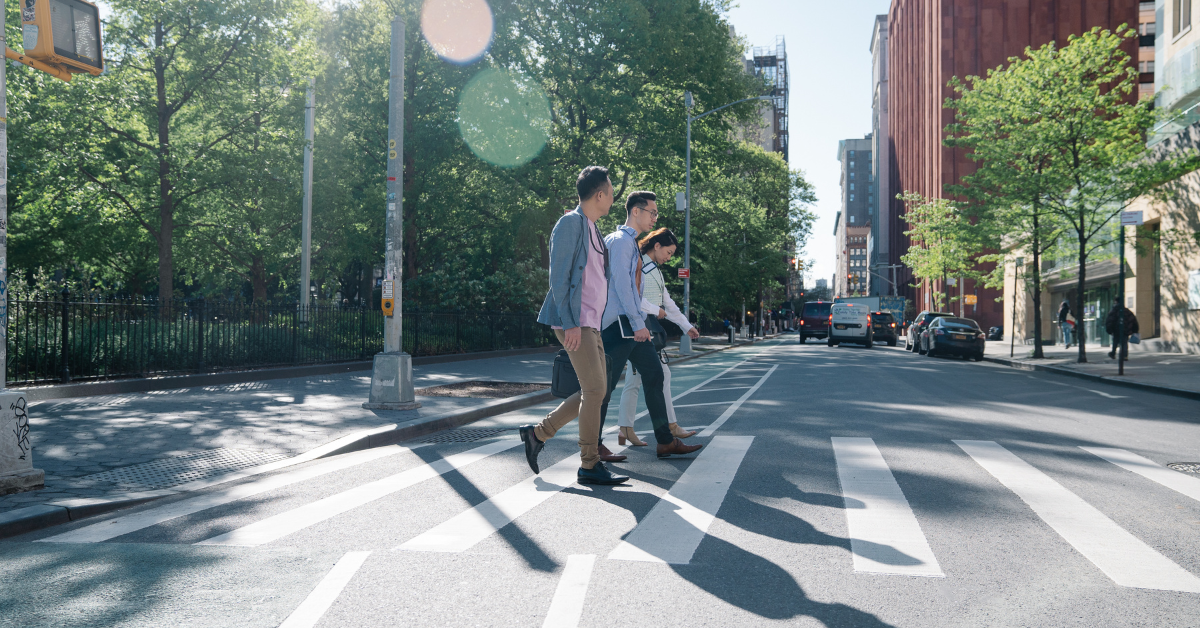
Pedestrian Injury Compensation: Unlock the Hidden Payouts You Deserve

*Collaborative Post
Pedestrian accidents are more common than we think, and the aftermath can be overwhelming. Understanding your rights to pedestrian injury compensation is crucial if you or someone you know has been involved in such an accident. This article will guide you through everything you need to know to unlock the hidden payouts you deserve.
Understanding Pedestrian Injury Compensation
Pedestrian injury compensation refers to the financial reimbursement you may be entitled to if you have been injured in an accident as a pedestrian. This compensation covers various aspects, such as medical expenses, loss of earnings, and emotional distress. Knowing what you are entitled to can significantly impact your financial and emotional recovery process.
Why Is Pedestrian Injury Compensation Important?
When a pedestrian is injured in an accident, the physical and emotional toll can be immense. Medical bills pile up, time off work leads to loss of income, and the psychological effects can be long-lasting. Pedestrian injury compensation is designed to ease these burdens by providing financial support. It ensures that the victim can focus on recovery without worrying about the economic strain.
Steps to Take After a Pedestrian Accident
Your actions immediately after a pedestrian accident can significantly affect your ability to claim compensation. Here’s a step-by-step guide to ensure you are on the right path.
Seek Medical Attention Immediately
Your health is the top priority. It’s crucial to get medical help right away, even if your wounds appear small. Some injuries may not be apparent immediately but could have serious long-term effects. A medical report will also be crucial evidence when filing your compensation claim.
Gather Evidence at the Scene
Gather as much evidence as possible at the accident scene. Take photos of the location, your injuries, and any property damage. If there are witnesses, collect their contact information, as their testimony can be invaluable.
Report the Accident
Always report the accident to the police, even if it seems minor. A police report will provide an official incident record, which is often required for compensation claims.
Contact a Legal Professional
Navigating the legal process of claiming pedestrian injury compensation can be complex. It’s advisable to seek the help of a legal professional who specialises in personal injury cases. They can guide you through the process, ensuring that you don’t miss out on any entitlements. In most cases, obtaining legal help after a pedestrian accident can provide clarity on your options and ensure that every step is handled correctly.
What Can You Claim in Pedestrian Injury Compensation?
When it comes to pedestrian injury compensation, understanding what you can claim is vital. Here’s a breakdown of the different types of compensation you may be entitled to.
Medical Expenses
One of the primary components of compensation is covering medical expenses. This includes everything from initial emergency care to ongoing treatments and rehabilitation. Make sure to keep all medical bills and records as needed to support your claim.
Loss of Earnings
If your injuries have caused you to miss work, you can claim for loss of earnings. This compensation ensures you don’t suffer financially due to time off work. It can cover both past and future loss of profits, depending on the severity of your injuries.
Pain and Suffering
Beyond the physical injuries, pedestrian accidents can cause significant emotional distress. Compensation for pain and suffering is intended to address the psychological impact of the accident. This can include anxiety, depression, and any other mental health issues resulting from the incident.
Property Damage
If any of your belongings, such as your phone or clothing, were damaged in the accident, you might be entitled to compensation. Keep a record of any damaged property and receipts.
How to Maximise Your Pedestrian Injury Compensation
Securing the total amount of compensation you deserve requires careful attention to detail. Here are some tips to help you maximise your claim.
Keep Detailed Records
You are keeping detailed records, from medical bills to correspondence with your employer. Your assertion will be more persuasive the more proof you can provide. This includes documenting your recovery process and any ongoing treatments.
Follow Legal Advice
Your legal representative will guide the claims process. Following their advice closely is essential to avoid pitfalls that could reduce your compensation. They can help you understand the legal jargon and ensure your claim is filed correctly.
Be Honest About Your Injuries
Exaggerating or downplaying your injuries can harm your claim. Being honest about the accident’s impact on your life is essential. This honesty will be reflected in the medical reports and any assessments the insurance company makes.
Common Mistakes to Avoid When Claiming Pedestrian Injury Compensation
Even with the best intentions, mistakes can happen when claiming compensation. Here are some common errors to avoid.
Delaying Medical Treatment
Delaying medical treatment affects your health and can weaken your compensation claim. If you didn’t seek emergency medical assistance, insurance firms can contend that your injuries weren’t that serious.
Failing to Report the Accident
Please report the accident to the police to avoid damaging your claim. An official police report provides a vital piece of evidence that supports your case.
Not Seeking Legal Advice
Many people need legal assistance to handle their compensation claims. This can lead to missed opportunities and lower payouts. A legal professional will ensure you fully know your rights and entitlements.
Securing Your Rightful Compensation
Pedestrian accidents can be life-changing, but understanding your rights to pedestrian injury compensation can help you regain control. Consulting with a pedestrian accident lawyer can significantly improve your chances of receiving fair compensation. An experienced lawyer can guide you through the claims process, ensuring that you gather the right evidence and present a strong case.
Pedestrian injury compensation is not just about receiving financial aid; it’s about justice and ensuring you are fully supported during a difficult time. Remember to act quickly, gather evidence, and seek professional advice to maximise your compensation claim. By doing so, you’ll be in a solid position to secure the payout you deserve.
*This is a collaborative post. For further information please refer to my disclosure page.




